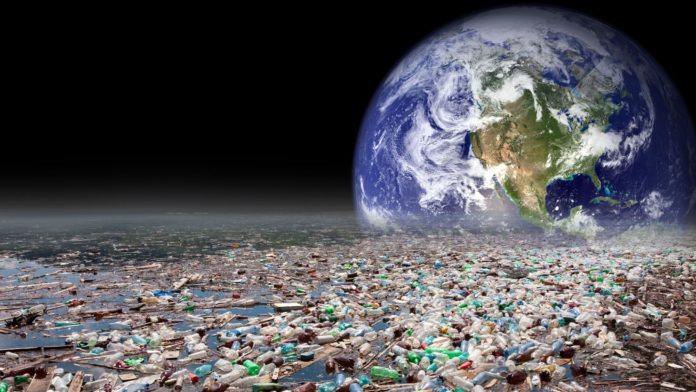
Now, this is pretty awesome; the fact is that scientists have long researched the ability to turn plastics into oil. After all, plastics are basically derived from oil in the first place. However, these machines have always been huge automatons…. Hardly something that the everyday person can access to do his bid for the environment. A Japanese inventor has built a tabletop machine that can accomplish the same task safely and cleanly.
Called the Blest Machine, it was assembled by Akinori Ito, after he began to see the places he played in as a child disappearing. He wanted to make the process of plastic recycling more accessible, reducing our dependence for immense land fills which are an increasing problem in densely-populated Japan.
Simply put your plastic trash into the large bucket, screw on a lid and turn it on. The temperature inside rises, slowly melting the plastic, which becomes a liquid and then a gas. The gas passes through a tube into a container, where it then cools and forms oil again. That oil can then be burnt as-is or further separated into gasoline, diesel and kerosene. A kilogram of plastic turns into about a litre of oil.
There are a few questions that haven’t been answered. Ito claims significant CO2 emission reductions, but that assumes that you would have originally burnt the plastic… In fact, CO2 emissions would be HIGHER now that the plastic has been turned into oil, since we end up burning the oil and releasing the carbon that would have been trapped in the plastic. Further, the process involves heating to begin with, which will certainly cost some sort of electricity…. and release even more CO2. Unless of course he means that his machine’s recycling of plastics would be a more energy-efficient substitute for current sources of oil. There’s also the question of what happens to all of the impurities and potentially toxic compounds, like paint, that are left behind when the machine’s finished turning the plastic into oil.
Ito plans to take the machine to developing countries, where it can be used as both a way to lessen the problem of ever-expanding landfills. Assuming the electricity for heating the plastic is less than that trapped in the oil, it would also provide a useful fuel. But the real value is in the machine’s size — it’s small enough to take on a plane, or sit in a family home, meaning that micro-production of oil becomes a real possibility: an industry for small-time entrepreneurs waiting to be exploited.
Ito’s current tabletop model can be purchased from Blest’s website around £6,000; an array of much bigger machines available too if you’re a particularly prolific hoarder.





it sounds too good to be true.. so i wish to know.. what bi-product is left in the cylindrical oven, and how can we dispose of that?
I cant imagine 100% of plastics turning into 100% gas..
There must be something left. :/
Agreed, I think this creation is amazing. my only issue is what he isn’t showing us at the end.
This can hardly be considered “new”. People having been doing this is Syria for quite some time: http://www.rheothing.com/2014/10/a-new-plastics-to-oil-operation-in-syria.html
Well, if you just remove the oxigen from the machine, you barely have CO2 productions cus you just don’t have enough oxygen..